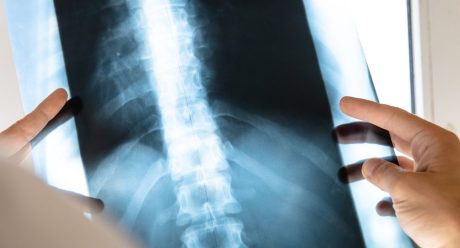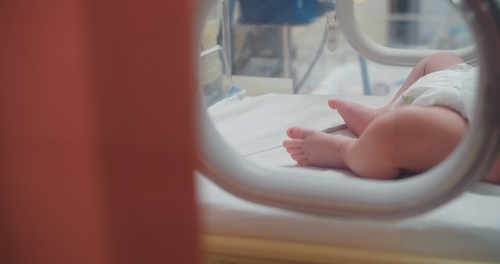Stewarts’ client Robert, a retired 82-year-old, achieved a seven-figure settlement after a delay by the defendant in carrying out surgical decompression of his spine, which left him with tetraplegia and consequent significant disability.
Clinical negligence associate Amy Goldman undertook initial investigations and secured a binding admission of liability in this case. Alison Goldney then secured a life-changing settlement for Robert.
Background and injury sustained
Robert was an active retiree who enjoyed gardening and had a busy social life with his family and a local male voice choir.
In September 2019, his mobility deteriorated, and he started to struggle with balance and walking. He was reviewed by a spinal nurse at the defendant trust, and an MRI scan of his cervical, lumbar and sacral spine was arranged. The MRI scan revealed stenosis of the spinal canal at C3/4. An appointment with the defendant trust’s neurosurgical team was made.
Robert’s leg function deteriorated. In November 2019, he saw his GP, who tried to expedite his neurosurgical review. He was seen by the defendant’s neurosurgery team in December 2019 and was advised his condition would be managed conservatively.
Robert’s condition deteriorated further, and he also started to have weakness in his right arm. He saw his GP multiple times between March and May 2020. In May 2020, his GP made an urgent referral to the defendant trust’s neurosurgery team. Robert underwent a repeat MRI scan on his spine, which revealed a compromise to his cervical spinal cord at two levels.
In September 2020, Robert was reviewed by the defendant trust’s neurosurgery team and advised to undergo a cervical decompression operation. The operation was not carried out until December 2020. After the operation, Robert had weakness in both arms and legs. A post-operative MRI scan showed a spinal cord bleed and swelling around the spinal cord. The cause of the spinal cord damage was reactive hyperaemia (a reperfusion injury).
Due to damage to the spinal cord, Robert was left with incomplete tetraplegia, making him wheelchair dependent. He has weakness in both arms and legs and reduced sensation all over his body.
The legal case
After undertaking investigations, Stewarts sent a letter of claim to the defendant trust. It was alleged that:
- there were delays in reviewing Robert after his initial MRI scan
- there was a failure to undertake a full neurological examination in December 2019
- there was a failure to offer Robert cervical decompression surgery in December 2019, which should have been performed within four weeks of the review
- there was a delay in undertaking cervical decompression surgery.
Liability was admitted in the letter of response, and a six-figure interim payment was made to Robert to assist with care, equipment and ongoing rehabilitation pending settlement of his claim. A further six-figure interim payment was made to fund additional inpatient rehabilitation before settlement.
Experts and witness evidence
Stewarts retained experts in occupational therapy, physiotherapy, accommodation, psychology and spinal rehabilitation to assess Robert’s needs. The experts recommended a bespoke 24/7 care package to allow Robert increased flexibility away from the restrictive nature of the care calls provided by his assisted living facility. The set times of care calls at the assistive living facility meant Robert had to be at home to be put to bed at 9.30pm, preventing him from socialising as he wished with friends and family. Robert found the restrictive nature of his care very upsetting and was forced to rely heavily on family members for additional support.
Robert was prevented from accessing the community when he wished due to the limited nature of support available. Experts advised that Robert’s assisted living flat was not suitable for his needs due to its insufficient size and lack of room to accommodate the carers required by the recommended care package. A larger bungalow was recommended to accommodate the proposed care package and to allow room for rehabilitation equipment.
Witness evidence was obtained from Robert and his daughter regarding the impact of his injury.
Settlement
The parties attended a settlement meeting in June 2024. Alison Goldney, instructing Vanessa Cashman of 12 King’s Bench Walk, secured a damages settlement totalling £1.2m at the settlement meeting.
The settlement will enable Robert to move to a suitable bungalow so that he can regain some of the independence lost since his injury, as well as ensure he has access to ongoing therapies. Importantly, he will also be able to receive 24/7 care, meaning he can do what he wants when he wants without the confines of the fixed care calls at the assisted living facility.
Robert has recently identified a suitable bungalow in his ideal village by the sea and close to friends and family. He is very much looking forward to moving into his new bungalow, hopefully by the end of 2024.
Testimonial from Robert’s daughter
“As a family we are incredibly grateful for the support provided by Stewarts in managing my father’s claim. From the outset, the team was consistently positive, inclusive and informative. Moving forward they demonstrated incredible knowledge, ensuring we received collective information from numerous professionals who provided a comprehensive assessment of my father’s day-to-day requirements.
The team ensured that my father’s fundamental needs were considered and met, and in the end, for him, the best possible outcome achieved. The final settlement has allowed him the freedom to once again live independently, surrounded by carers and professionals who provide him with all the support he needs.
In his own home, my father wholeheartedly enjoys the ability to welcome family, friends, and numerous caring professionals any time of the day or night without restriction. This is a basic right he values greatly in the last few years of his life, and serves only to enhance his emotional as well physical wellbeing.”
You can find further information regarding our expertise, experience and team on our Clinical Negligence pages.
If you require assistance from our team, please contact us.
Subscribe – In order to receive our news straight to your inbox, subscribe here. Our newsletters are sent no more than once a month.







